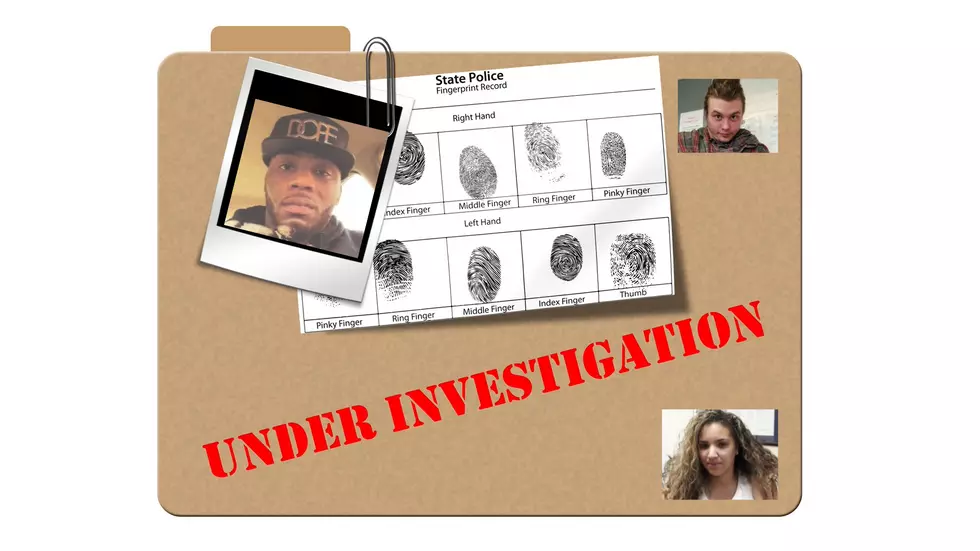
Brookfield ShopRite Limits Certain Items But Does So With a Smile
I want to take a minute to share an experience I had while shopping at one of our more popular local supermarkets.
As most people in our state, specifically in Fairfield County, take as many of the proper precautions as we can to slow the spread if COVID-19, tensions can tend to run a little high, especially when we're out shopping for the supplies we need for our families. With that, I can say that we could all learn a thing or two from the way the staff at the ShopRite on Federal Rd. in Brookfield has seemingly been handling things recently -- at least from this humble shopper's point of view.
For some reason or another, I tend to do my shopping in small bunches as opposed to a big, bulk trip once every week or two. With that, I happen to interact with the ShopRite Brookfield staff fairly often. I've always been impressed with how particularly efficient and courteous they are to everyone, but I'd imagine those qualities have been much more difficult lately, given the current situation going on around here. That said, if the ShopRite staff is feeling any of that fatigue from the high volume of shoppers they've been experiencing over the past week or so, you certainly can't tell by their actions.
One thing I noticed right away, and it's even Mayor of Danbury Mark Boughton pointed out, is that because of obviously supply-in-demand issues, they are limited the amount of items in certain categories that shoppers can buy. As of Friday night (March 13), a "two per customer" limit was placed on bottled water. The in-store notice also came with a very specific message that we all should really do our best to remember as we're all out navigating these uncharted waters.
We hope that you will consider your neighbors and communities when purchases these items so that everyone can get what they need.
Even if you're cranky about the fact that you can't purchase 10 gallons of water at a clip, that simple message alone should instantly be a kind reminder to you that maybe you should just pick up enough to get by so that others, who by the way live in the same community that you do, can do the same.
Unfortunately, when I made my way to the paper aisle, the sight looked very familiar, and many other stores in the area are being completely "wiped out."
So, I grabbed one of the bounty four packs, which should be enough for my wife and I for the time being, but we couldn't lock down any of the Scott's TP (I know, a little rough, but it's good for the ol' septic system). When I asked one of the employees about it, they were apologetic, even though it certainly isn't their fault, and assured me that they will be stocking as much as they can, as quickly as possible. Then I continued about my journey.
Then, within short order, it was finally time for check out. When I rounded the corner to strategically choose my checkout line, there were stacked and stuffed shopping carts and people as far as the eye could see. Mind you, this was at 10:30 PM, just 30 minutes before the store was closing.
When my time came, the cashier could've easily hustled me along, showing off her frustration and fatigue at the tail-end of what must have been an exhausting shift full of "interesting" interactions to say the least. That's the exact opposite of what happened. She was fast, efficient, scanning and subsequently bagging with poise and grace as I put my phone number into the key pad.
When I finished, I jumped in to help expedite the bagging process, she smiled and worked up a bit of small talk, noting that everything was going to be okay, sending her well-wishes to myself and my wife at home, who happens to be seven months pregnant.
I know that all of this seems so rudimentary and just common courtesy, but given the time of night, the tone in the air, and the obvious circumstances, it all meant so much to me in that moment that I was greeting with such courtesy and friendliness.
All of that is to simply say that yes, we should all be prepared and cautious, but it's also important to remember to only get what is needed for you and your family, and for the love of all things, be nice to each other in the process.

According to the Department of Public Health, the risk of becoming infected with COVID-19 is considered low for people who had contact with an individual who does not have COVID-19 and does not have symptoms. In other words, a contact of a contact is considered low risk.
Any resident that is not currently showing symptoms of the virus (two or three days of fever, cough, and shortness of breath) can dial 211 at any time with any basic questions.
Related stories:
- COVID-19 Patient in Medically Induced Coma at Danbury Hospital
- Connecticut Bans Large Gatherings, Officials Provide Current COVID-19 Stats
- Mayor Mark Boughton: Danbury Public Schools Closed Indefinitely Out of Caution
- Governor Lamont Waives 180-Day Requirement for Connecticut Public Schools, Extends All License Renewals
- 5 Reasons Why You Should Not Panic About The Coronavirus
- Danbury Mayor Dispels Rumors, Reminds Residents 'We Are Prepared, Not Scared'
The Governor's Office has also provided residents with some important messages to keep in mind:
- People without symptoms should not be tested for COVID-19. Testing individuals with no symptoms is not recommended by CDC.
- If you were with someone who does not have symptoms, the risk of transmission is very low.
- There are many respiratory illnesses circulating in Connecticut, such as the flu and the common cold. Having respiratory symptoms does not mean that you have COVID-19.
- People are at higher risk for COVID-19 if they have symptoms of the virus (cough, fever, shortness of breath) AND if they were a contact of a positive case of COVID-19 (or have traveled to country with community transmission, such as China, Italy, South Korea, Iran, and Japan).
- Someone is considered a contact if they have had direct, face-to-face contact with a person with COVID-19.
- People who think they have COVID-19 should call their healthcare provider. These people should not go directly to a healthcare facility without first calling a healthcare provider (unless they are experiencing a medical emergency).
- People with general questions about COVID-19 can visit ct.gov/coronavirus or call 2-1-1.
- Everyone can help stop the spread of viruses in Connecticut.
- Get your flu shot, and make sure the people around you do the same.
- Wash your hands often throughout the day. Use warm water and soap. If soap and water are not available, use alcohol-based hand gel.
- Cough or sneeze into your elbow. Viruses can spread by coughing or sneezing on other people or into your hands.
- Stay home from work or school if you are sick.
- Avoid touching your eyes, nose, or mouth. Germs spread this way.
- Get plenty of sleep, be physically active, manage your stress, drink plenty of fluids, and eat nutritious foods.
- Keep surfaces (especially bedside tables, surfaces in the bathroom, and toys for children) clean by wiping them down with a household disinfectant.
More From WRKI and WINE









